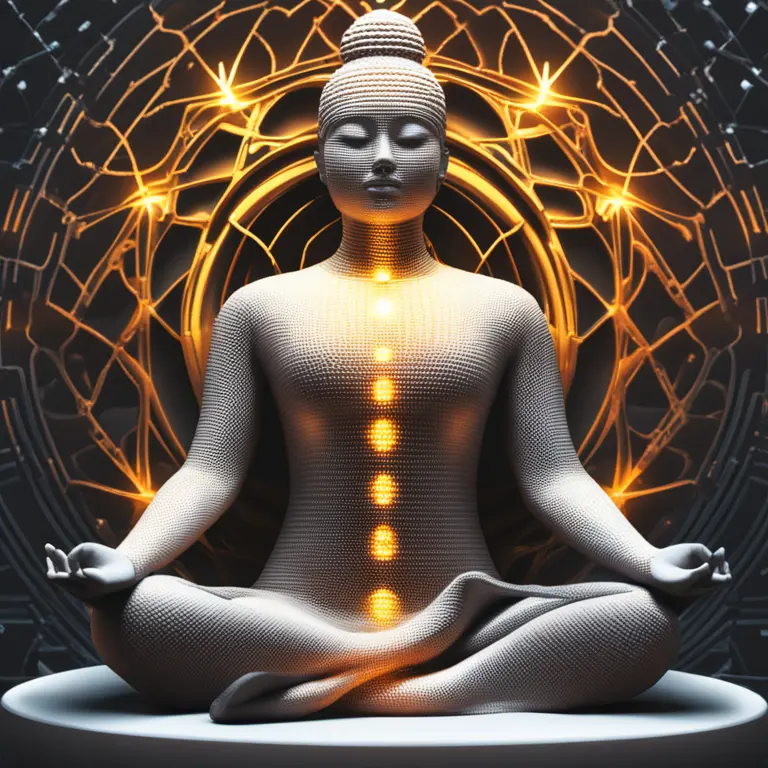
The Best Meditations for Soothing Sleep
Discover effective meditation practices that can enhance the quality of your sleep, paving the way to a restful night.
article by Hina Kurosawa
Introduction to Sleep Meditation
Sleep issues can greatly impact one's daily life, leading to a search for natural and effective solutions. Meditation for sleep is a gentle approach that can help calm the mind and prepare the body for rest. As we approach 2024, the bustling demands of modern living make mindfulness and relaxation techniques more relevant than ever. This article will guide you through the best meditation practices designed to promote restorative sleep.

Body Scan Meditation for Relaxation
Body Scan meditation is a mindfulness practice that promotes relaxation and can be particularly beneficial before bedtime. Settle into a comfortable position and gradually shift your attention through each part of your body. Observe sensations without judgment and allow the mind to focus on releasing tension. By mentally scanning from head to toe, stress dissolves, redirecting the path towards tranquil sleep.

Guided Imagery to Quiet the Mind
Guided Imagery is a powerful meditation tool that harnesses the imagination to evoke calm. Through guided narratives or visualizations, this method distracts the mind from daily worries and fosters a peaceful state. In 2024, technology offers an array of applications and online platforms providing access to guided imagery sessions tailored for sleep, making it easier to embark on a serene journey at the end of the day.

Breath Focus Techniques for Deep Rest
Breathing exercises are core to many meditation practices, with techniques like the 4-7-8 breath promoting deep relaxation. Inhale for four counts, hold for seven, and exhale for eight. This rhythm acts as a natural sedative for the nervous system. As awareness anchors to the breath, the extraneous noise of thoughts fades, edging you closer to deep sleep's embrace.
Progressive Relaxation for Stress Release
Progressive Muscle Relaxation (PMR) is another effective meditation technique designed to alleviate stress before bed. Tense each muscle group for a few seconds and then release to experience a wave of relaxation. Not only does PMR help in releasing physical tension, but it also trains the mind to recognize and prioritize comfort, contributing to a more restful sleep pattern.
Mindfulness Meditation for Sleep Hygiene
Mindfulness meditation encourages present-moment awareness and acceptance, which can be beneficial for those struggling with sleep. By observing thoughts and breath without attachment, you learn to detach from the day’s events and slip into a state conducive to sleep. Practices like these can be part of a healthy sleep hygiene routine, setting the stage for a good night's rest in today's fast-paced world.
Sleep-Specific Mantra Meditation
Mantra meditation involves the silent repetition of a calming word or phrase and can be a simple yet profound tool for sleep. Choose a mantra that soothes you, repeat it gently in your mind, and allow the repetition to carry you into a state of deep relaxation. Mantras help focus the mental energy on a single point, crowding out the day's stresses and preparing you for sleep.
Published: 1/14/2024
Modified: 1/15/2024
More predictions
Come back here soon to learn more about yourself and your future


Calming the Storm: Mindfulness Meditation for Anger
Discover how mindfulness meditation can be a powerful tool for anger management, promoting inner peace and emotional balance.


Mindfulness & Meditation: A Guide for High Schoolers
Discover the benefits of mindfulness meditation tailored for the hectic life of high school students, and learn simple strategies to incorporate it into the daily routine.


Easing Loneliness with Meditation
Discover how mindfulness meditation can provide solace and connection to mitigate feelings of loneliness, enhancing emotional and mental well-being.